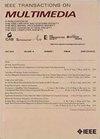Blockchain-Empowered Privacy-Preserving Digital Object Trading in the Metaverse
IF 2.3
4区 计算机科学
Q2 COMPUTER SCIENCE, HARDWARE & ARCHITECTURE
引用次数: 3
Abstract
The metaverse is an advanced digital world where users can have interactive and immersive experiences. Users enter the metaverse through digital objects created by extended reality and digital twin technologies. The ownership issue regarding these digital objects can be solved by the blockchain-based nonfungible token (NFT), which is of vital importance for the economics of the metaverse. Users can utilize NFTs to engage in various social and economic activities. However, current NFT protocols expose the owner’s information to the public, which may contradict with the privacy requirement. In this article, we propose a protocol, NFTPrivate, that can realize anonymous and confidential trading of digital objects. The key idea is to utilize cryptographic commitments to hide users’ addresses. By constructing proper zero-knowledge proofs, the owner can initiate privacy-preserving yet publicly verifiable transactions. Illustrative results show that the proposed protocol has higher computation and storage overhead than traditional NFT protocols. We think this is an acceptable compromise for privacy protection.在虚拟世界中使用区块链保护隐私的数字对象交易
元宇宙是一个先进的数字世界,用户可以在这里获得互动和身临其境的体验。用户通过扩展现实和数字孪生技术创建的数字对象进入元宇宙。关于这些数字对象的所有权问题可以通过基于区块链的非无形代币(NFT)来解决,这对元宇宙的经济至关重要。用户可以利用NFT从事各种社会和经济活动。然而,目前的NFT协议将所有者的信息暴露给公众,这可能与隐私要求相矛盾。在本文中,我们提出了一种协议,即NFTPrivate,它可以实现数字对象的匿名和保密交易。关键思想是利用加密承诺来隐藏用户的地址。通过构建适当的零知识证明,所有者可以发起保护隐私但可公开验证的交易。仿真结果表明,该协议比传统的NFT协议具有更高的计算和存储开销。我们认为这是一个可以接受的隐私保护折衷方案。
本文章由计算机程序翻译,如有差异,请以英文原文为准。
求助全文
约1分钟内获得全文
求助全文
来源期刊

IEEE MultiMedia
工程技术-计算机:理论方法
CiteScore
6.40
自引率
3.10%
发文量
59
审稿时长
>12 weeks
期刊介绍:
The magazine contains technical information covering a broad range of issues in multimedia systems and applications. Articles discuss research as well as advanced practice in hardware/software and are expected to span the range from theory to working systems. Especially encouraged are papers discussing experiences with new or advanced systems and subsystems. To avoid unnecessary overlap with existing publications, acceptable papers must have a significant focus on aspects unique to multimedia systems and applications. These aspects are likely to be related to the special needs of multimedia information compared to other electronic data, for example, the size requirements of digital media and the importance of time in the representation of such media. The following list is not exhaustive, but is representative of the topics that are covered: Hardware and software for media compression, coding & processing; Media representations & standards for storage, editing, interchange, transmission & presentation; Hardware platforms supporting multimedia applications; Operating systems suitable for multimedia applications; Storage devices & technologies for multimedia information; Network technologies, protocols, architectures & delivery techniques intended for multimedia; Synchronization issues; Multimedia databases; Formalisms for multimedia information systems & applications; Programming paradigms & languages for multimedia; Multimedia user interfaces; Media creation integration editing & management; Creation & modification of multimedia applications.
 求助内容:
求助内容: 应助结果提醒方式:
应助结果提醒方式:


